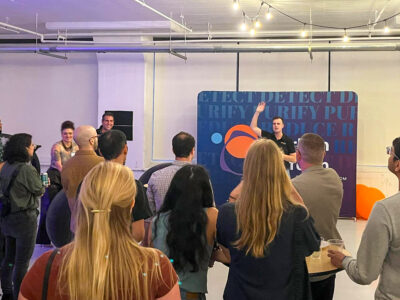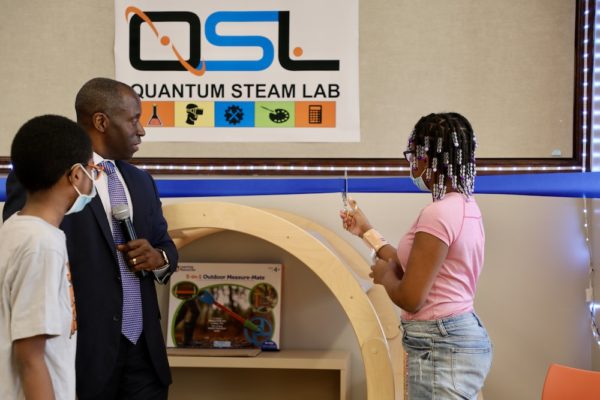Editor’s note: This story represents ongoing reporting by Technical.ly to understand how to better prepare Philadelphia students for technology careers. If you have a relevant perspective to share, please do reach out to be included in future stories by emailing philly@technical.ly.
Danecia Berrian, an instructional coach at William Rowen School in West Oak Lane, said these are some of the kids’ favorite activities in the school’s Quantum STEAM Lab, which houses 30 virtual reality headsets. The lab also has 3D printers and robotics, and starting this school year, the school will be introducing a quantum physics program to fourth and fifth graders.
Berrian and her colleagues knew these topics were important for their students to learn, and after years of planning, they found a way to bring them into the classroom. The lab is an example of educators pursuing external support to bring STEM learning opportunities for their students beyond the resources allotted to them.
Technical.ly asked several K-12 educators: What are you doing to expose your students to STEM topics? We also talked to Dr. Youngmoo Kim, the director of the Expressive and Creative Interaction Technologies (ExCITe) Center at Drexel University and a professor at Drexel, about his perspective as someone providing support to K-12 schools.
The big takeaway? Access to quality and inventive STEM education is essential for today’s students to prepare for some of the most in-demand careers they’ll encounter as adults. To help their students get there, School District of Philadelphia teachers are pursuing industry partnerships, external training and sponsors to help them get their students ahead. Here’s what that work looks like.
Why focus on STEM education for K-12 students
The STEAM Lab at William Rowen School is partnered with the Quantum Biology Laboratory at the DC-based HBCU, Howard University, where the university’s scientists help support the development of learning materials and also engage with the students.
Berrian knows that for students to see themselves in STEM careers, it helps to see successful professionals who look like them doing that work, too. (Remember the classic “You can’t be what you can’t see”?) Nearly 94% of students at Rowen identified as Black or African American during the 2021-2022 school year. Through the Howard partnership, Berrian’s students will be able to Zoom with Black scientists at the school and ask them questions.
According to Berrian, this lab was a dream that the school’s leadership had been thinking about for years, since they started an after-school science program to participate in the George Washington Carver Science Fair through the School District of Philadelphia. In 2020, Rowen Principal Dr. James Murray received the Christian R. and Mary F. Lindback Award for Distinguished Principals, which included a $20,000 community stipend he used to help fund the lab that was finally built in the summer and fall of 2021. The STEAM Lab opened in winter 2022.
“When you think about the advancements that our society is making in technology, and science and mathematics, that is where society is going,” Berrian said. “Everything is starting to become virtual. Everything is starting to have some type of technological advance built into it. So understanding technology from a kindergarten level and developing that all the way through high school or college and beyond, are going to be the keys and the building blocks that we need for our society.”
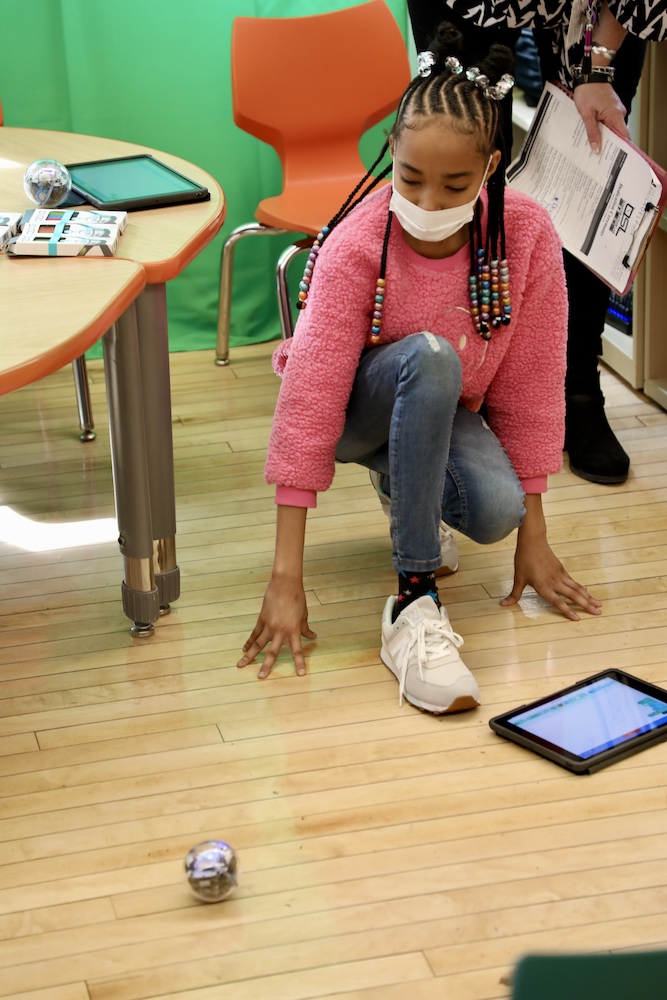
STEM ed at William Rowen School. (Photo courtesy of the School District of Philadelphia)
Teaching the teachers
Paula Miller, who’s been a teacher at Abraham Lincoln High School in the Mayfair section of Northeast Philadelphia for 22 years, said her first exposure to robotics was about seven years ago when the school was invited to join the First Tech Challenge by the Philadelphia Robotics Coalition.
From there, she had the idea to bring robotics into the classroom as an elective, but she wanted to expose herself to it as much as possible before bringing it to her students. Last summer she was selected to participate in the Naval Education Workplace Training program, where she worked in a research lab in the Navy Yard for eight weeks learning about the engineering design process from Navy engineers and scientists, and earned a cash stipend.
She brought that experience back into the classroom by doing a project-based learning activity called “We Are Sailing” where the students learned about different types of ships and buoyancy and designed their own ships.
STEM education programs for teachers isn’t a new concept. Carnegie Mellon University, for instance, hosted a workshop this summer for Pittsburgh teachers to learn about AI and bring what they learned back into their classrooms. Such programs supplement the continuing education credits teachers must regularly earn, and serve to better prepare educators to bring new concepts to their classrooms, especially for fields in which new information comes quickly.
Miller and her colleagues have been working on bringing robotics into the classroom since they received a $1,500 grant from the Fund for the School District of Philadelphia to purchase drones for Lincoln in 2021. They also worked with Tristan Wolfe, the STEM outreach program manager for the Naval Surface Warfare Center’s Philadelphia division, who came into the school and talked to the students about buoyancy in air and water.
Miller said she wants to expose her students to these topics and experiences because the world is changing. For example, while students may see drones as a cool toy to play with, they’re used as a tool in many industries, and often as a way to complete tasks that may be too dangerous for humans.
“Today’s new thoughts are tomorrow’s old thoughts,” Miller said. “You really have to make sure that they’re familiar with technology — but are they familiar with the use of technology in the workplace?”
STEM ed as prep for STEM careers
Davis Haines is also looking ahead with his lessons: The advanced electronics and automated systems teacher at A. Philip Randolph Technical High School in Allegheny West said he teaches his students about electronics with the goal of helping them become technicians or pursue a similar degree or field following graduation.
Haines’ class covers the basics of how electronics work, as well as soldering, configuring circuits and building robots, among other topics. He said many of his past students have gone on to college for electronics or engineering degrees, and many of them earned scholarships to do so.
Randolph focuses on career and technical education (CTE) and offers programs for other technical trades such as auto, construction and health-related systems. Haines said his class is important because every trade they teach at the school can be done by a robot — and someone has to know how to fix that machine. It’s the same reason Pittsburgh Technical College across the state just launched an engineer technician program for the robotics and autonomous vehicle industries.
“Every aspect of our life anymore has something to do with electronics,” Haines said. “All that stuff might be made in China or Taiwan or Singapore, but when it comes here, we have to fix them. And that’s really the angle to get these students into fixing that stuff, and it’s high-tech stuff now.”
Haines’ program is sponsored by Pepsi Cola in conjunction with the vending industry-focused National Automatic Merchandising Association (NAMA). The latter org provides support to help him keep his electronics program going with resources like new equipment for students to work on and funding to bring students to trade events. Haines said other programs at his school get industry support, too.
“You need support from the industry to make a really good CTE program,” he said. “It just can’t run solo.”
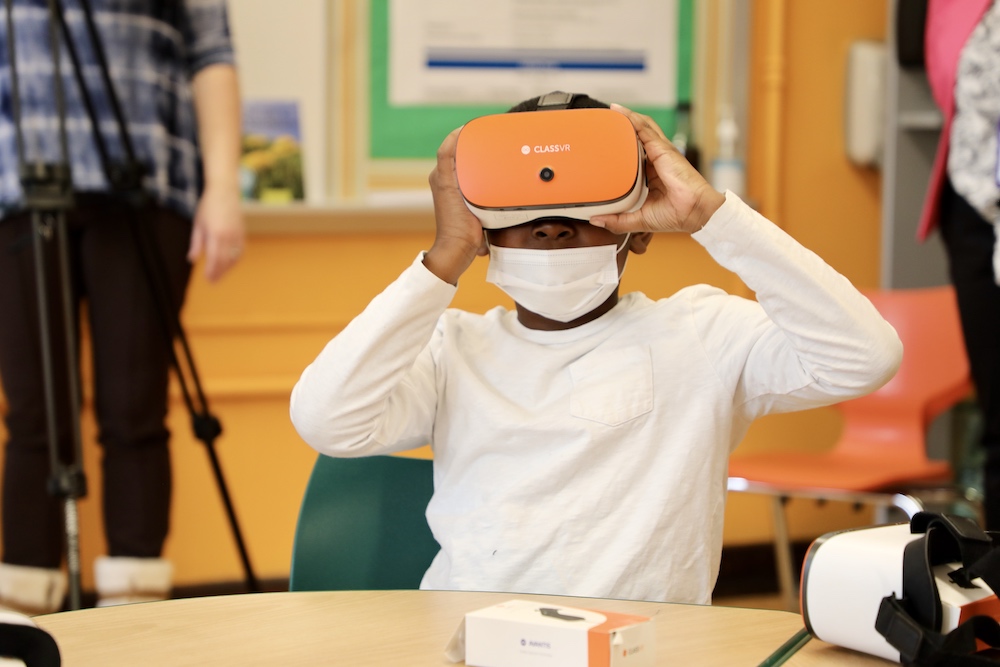
STEM ed at William Rowen School. (Photo courtesy of the School District of Philadelphia)
How can tech education orgs best work with educators?
Haines recognizes the importance outside organizations can play in tech education. And from the opposite side of the table, ExCITe Center’s Kim recognizes the role his program plays in young people’s education outside of school hours. The Drexel hub brings free STEM ed programs to students in the West Philadelphia Promise Zone, an area designated by the Obama Administration in 2014 to support areas of the country impacted by high poverty rates. This summer, its annual Young Dragons summer STEAM camps focused on Minecraft engineering, refurbishing old computers and coding.
It’s a common refrain that schools need more STEM programming, but Kim laments that educators don’t get much direction about how to best prepare students for the most in-demand careers, which can make it tough to focus on the most quickly changing STEM topics within a regular school day curriculum.
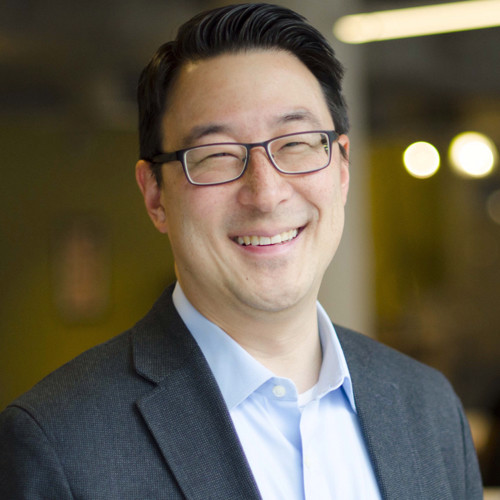
Youngmoo Kim. (Photo via LinkedIn)
“It’s just hard because they have standards to meet and they just have very limited hours,” he said. “So that’s what we try to provide during the summer. … We would like to think of [our camps] as at the leading edge of technology and learning.”
Echoing Miller, Kim noted that tech education often teaches tools for today’s technology, but curricula get old very quickly as the tech changes: “These 10- and 12-year-olds are going to face a very different future 10 years from now when they’re entering the workforce,” he said. “We need to be showing them the future. We always need to be pushing forward. And so that’s what we try to do in our programs.”
The ExCITe Center also partners with Powelton Village’s Science Leadership Academy by providing additional enrichment for its students. But Kim acknowledged that partnerships don’t always work for everyone: Even if schools ask for partnerships, the industry orgs coming in to help out might not know how to work with middle schoolers. If an organization wants to get involved with a local school, Kim recommends they do some training on their own to learn how to teach before offering their time.
“If they haven’t been actually trained in pedagogy and learning science,” he said, “and certainly trauma-informed teaching and learning and culturally responsive pedagogies, it’s not gonna work out well for the most part.”
###
No one knows exactly what the future of technology and the workforce will look like. To best prepare their students, these educators are showing us they can’t work alone. It takes a village — one supported by people, organizations and funding outside of schools’ walls.
_
For more on Kim’s last point about partnership best practices, check out this edition of Technical.ly’s 2021 case study series on boosting diversity in tech: How can tech employers boost diversity in the talent pipeline, starting with K-12?
Next up, we’re wondering: Is this “village” model of the best way to get more STEM resources to Philly students? If you work in this space, we want to hear from you. To contribute to Technical.ly’s ongoing reporting on the nature of tech education in Philadelphia, email philly@technical.ly.
Sarah Huffman is a 2022-2024 corps member for Report for America, an initiative of The Groundtruth Project that pairs young journalists with local newsrooms. This position is supported by the Lenfest Institute for Journalism.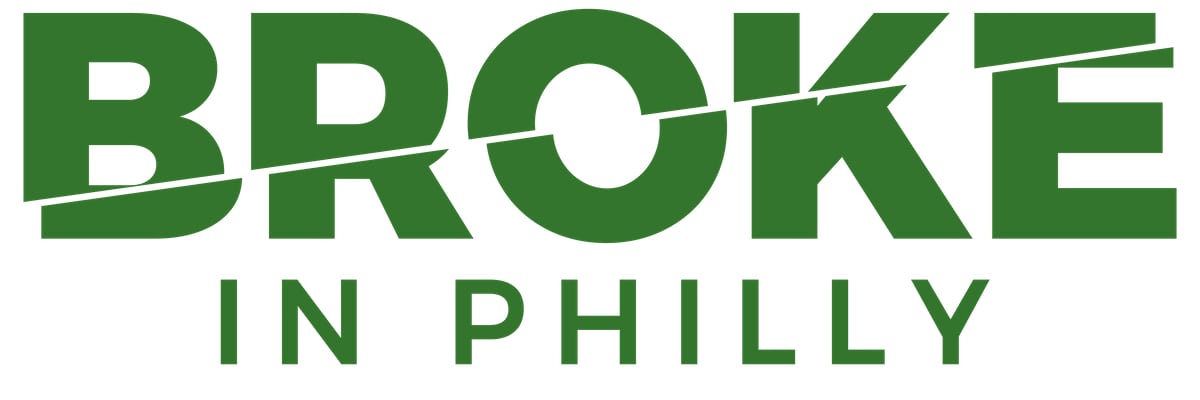
Technical.ly is one of 20+ news organizations producing Broke in Philly, a collaborative reporting project on solutions to poverty and the city’s push toward economic justice.
Before you go...
Please consider supporting Technical.ly to keep our independent journalism strong. Unlike most business-focused media outlets, we don’t have a paywall. Instead, we count on your personal and organizational support.
Join our growing Slack community
Join 5,000 tech professionals and entrepreneurs in our community Slack today!
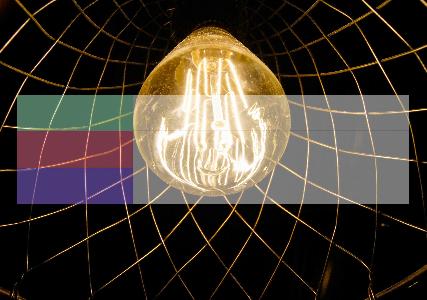
A new model for thinking about how to grow regional economies: the Innovation Ecosystem Stack
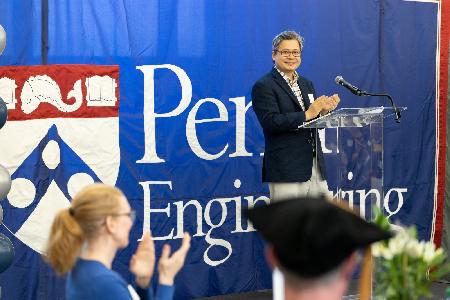
Penn dean is a startup founder and ‘engineer at heart’ who loves the connection between education and business

20 tech community events in October you won’t want to miss
